70 Years Of Speciality Naphthenic Oils Innovation For Global Tyre Industry
- By TT News
- August 22, 2025

For over 70 years, Ergon has been delivering innovative products and service solutions for ever-changing needs. With more than 4,200 employees working across a solutions-driven supply chain, the company supports industries and communities globally. Customers can access Ergon’s products and services in more than 100 countries around the world.
Through an enhanced focus on the needs of speciality markets, Ergon has grown to become the world’s leading producer and marketer of naphthenic oils. Its horizons have expanded, but the mission remains the same: meet needs, support families, serve customers.
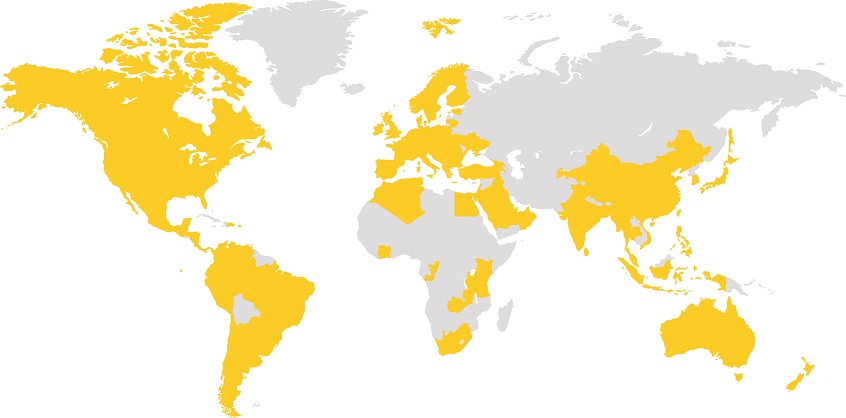 Ergon manufactures, markets and distributes speciality oils in the US, Latin America, Europe, the Middle East, Africa and Asia. Its strategically located terminals throughout these regions create a secure and consistent supply of speciality oils for customers.
Ergon manufactures, markets and distributes speciality oils in the US, Latin America, Europe, the Middle East, Africa and Asia. Its strategically located terminals throughout these regions create a secure and consistent supply of speciality oils for customers.
As chemistries shift and the needs of customers evolve, Ergon is leveraging its expertise in speciality oils to advance industries, such as the tyre industry, with innovative, low-carbon solutions that meet the evolving demands of customers.
OVER 30 YEARS OF QUALITY PROCESSING AND TESTING
Customers can trust that Ergon’s process oils are formulated to meet exact specifications and undergo thorough testing. Ergon International partners with various laboratories, including its own US facilities and esteemed European laboratories, to rigorously test materials and deliver consistent, high-quality solutions. The company’s technical experts are recognised worldwide for their commitment to working with partners to advance industry standards for quality speciality oils.
HIGH-QUALITY OILS
Ergon’s process oils are genuine naphthenic oils produced to precise specifications and designed for a variety of processing applications. These oils offer low pour points, excellent solvency, low odour and strong colour stability. The products range from low (4 cSt) to high (936 cSt) viscosity, with blending capabilities to meet a range of industry needs.
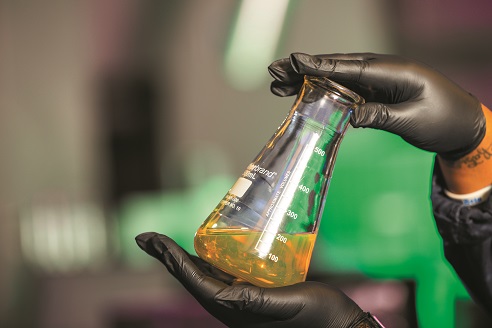 TAILORED TYRE SOLUTIONS FROM A TEAM OF GLOBAL EXPERTS
TAILORED TYRE SOLUTIONS FROM A TEAM OF GLOBAL EXPERTS
Customers are seeking dependable solutions for an array of applications. Ergon’s experts understand the unique needs of each and tailor formulations to optimise product performance. The products, such as HyPrene Process Oils, are essential for a wide range of tyre applications, including passenger vehicles, heavy-duty trucks, off-road vehicles, aviation and motorcycles.
Properties such as viscosity, solvency, molecular weight, thermal stability and polarity are key to tyre performance. These chemical properties influence vulcanisation, flexibility, durability, traction and rolling resistance. Achieving the right balance can be a challenge, but Ergon’s team of technical experts is dedicated to developing formulations to meet customers’ specific tyre needs.
Sustainable tyre development prioritises eco-friendly process oils, such as bio-based and recycled materials, energy-efficient manufacturing and circular economy principles. This results in greater longevity of tyres through improved traction and rolling resistance.
Ergon’s tyre solutions help optimise safety, rolling resistance, grip and performance while reducing CO₂ emissions through the adoption of greener technologies. These advancements enable the development of specialised tyres, such as those for challenging terrains or for electric and autonomous vehicles.
PRODUCT COMPLIANCE
Ergon’s tyre oils, including naphthenic oils, are carefully monitored to meet stringent regulatory requirements, ensuring compliance with the amendment (EU) 2015/326 of Annex XVII to the REACH regulation (EC) 1907/2006; the European standard EN 16143:2013, which governs the determination of Benzo(a)pyrene (BaP) and selected polycyclic aromatic hydrocarbons in extender oils.
Additionally, Ergon supports tyre manufacturers in aligning with Regulation (EC) No. 1222/2009, which provides the EU framework for tyre labelling based on fuel efficiency, wet grip and noise performance. By prioritising both compliance and performance, Ergon’s process oils help customers navigate evolving industry standards while optimising tyre formulations.
ERGON PRODUCTS USED IN TYRES
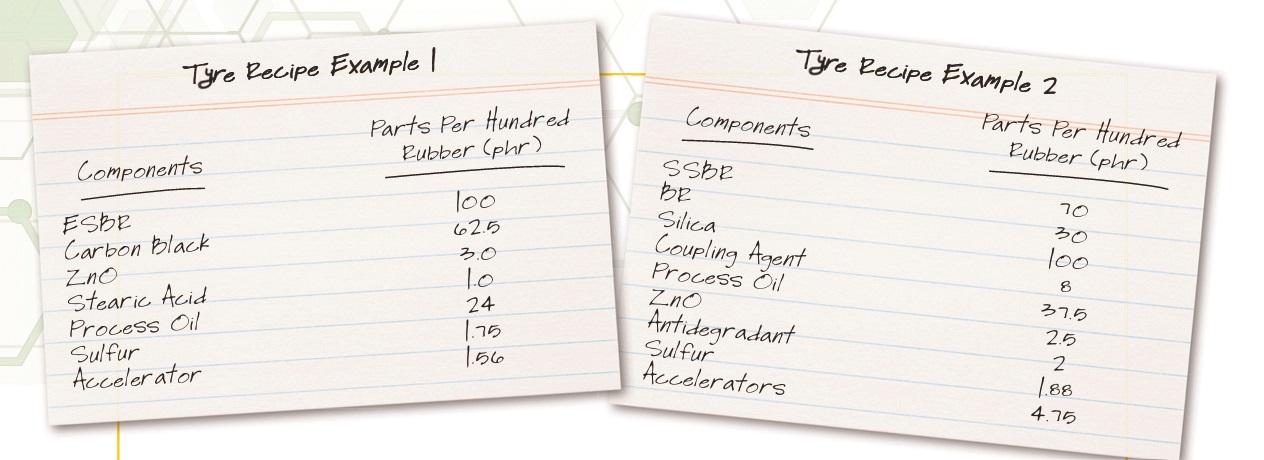 Ergon Mineral Oil Products – Low-PAH Naphthenic Oils
Ergon Mineral Oil Products – Low-PAH Naphthenic Oils
- HyPrene 100E (For High Filled Compounds)
- HyPrene L1200 (Alternative for MES)
- HyPrene L2000 (Alternative for TDAE, RAE and Black Oil)
Ergon Sustainable Products
- ISCC + Naphthenic Oils – HyPrene Products
- Recycled Oils – NuovoPrene Products
- Bio-Based Oils – EcoPrene Products
- 100% Bio-Based Oils – RBD Vegetable Oils
ERGON IS COMMITTED TO DOING RIGHT WITH ITS PRODUCTS, FOR THE PLANET, BY ITS PEOPLE AND THROUGH ITS PRINCIPLES.
Solutions to Meet Sustainability Targets
Ergon’s latest innovations focus on cleaner naphthenic oils and sustainable products, supporting eco-friendly materials from bio-based sources, such as EcoPrene Process Oils and RBD Vegetable Oils, or recycled sources, such as NuovoPrene Process Oils.
Recognised for Sustainability Excellence
In 2023, Ergon Refining Inc. (ERI), the company’s refinery in Vicksburg, Mississippi, which supplies naphthenic products around the world, received a silver medal from EcoVadis – a global platform that provides sustainability ratings.
 Additionally, Ergon International has joined other Ergon Energy & Specialty Solutions companies in obtaining International Sustainability & Carbon Certification (ISCC PLUS) status, including for its HyPrene and NuovoPrene products. This certification highlights the company’s commitment to product traceability and recycling.
Additionally, Ergon International has joined other Ergon Energy & Specialty Solutions companies in obtaining International Sustainability & Carbon Certification (ISCC PLUS) status, including for its HyPrene and NuovoPrene products. This certification highlights the company’s commitment to product traceability and recycling.
Helping Customers Meet Evolving Regulations
Ergon conducts Life Cycle Assessments (LCAs) for its naphthenic base oils, offering customers comprehensive evaluations of the environmental impacts of these solutions. LCAs serve as valuable resources for reducing environmental footprint and supporting customers in meeting their sustainability goals.
Accelerating Customer Success
Ergon is a service company dedicated to anticipating and meeting needs since 1954. The company transforms molecules into high-value solutions that improve the performance of products people use every day around the world. With its technical expertise and innovation, strategic logistics network and commitment to an exceptional customer experience, Ergon consistently leverages its resources to ensure customer success worldwide. That’s the Ergon way.
Zeon And Visolis Sign Binding Term Sheet To Advance Bio-Isoprene And SAF Commercialisation
- By TT News
- February 16, 2026
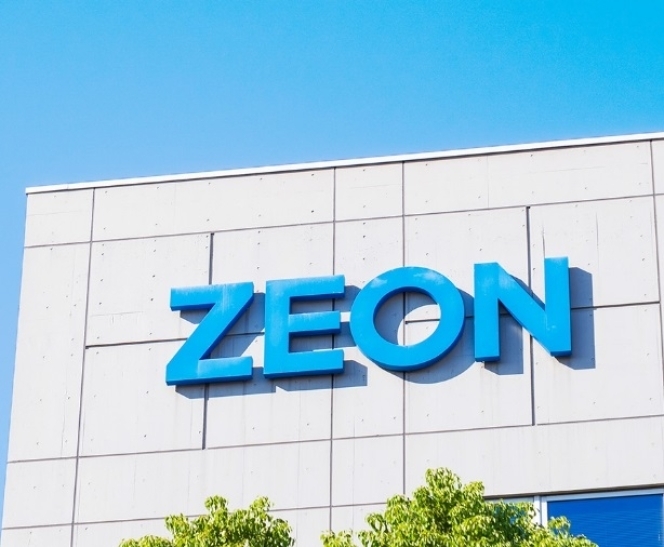
Zeon Corporation and Visolis Inc. have formalised their partnership by signing a binding term sheet, marking a pivotal advancement in the commercialisation of bio-based isoprene monomer and sustainable aviation fuel (SAF).
This collaboration, which now moves from technology verification towards project implementation, is built upon the progress made since their initial memorandum of understanding in March 2024 and the subsequent joint feasibility study announced in April 2025. Bio-based isoprene monomer serves as an essential component in the production of synthetic rubbers and various other materials, while SAF is increasingly recognised as a critical next-generation fuel for reducing carbon emissions within the aviation industry.
The newly established term sheet outlines a foundational agreement on the key elements required for a final investment decision. These include defining the business structure and the respective roles of each company, establishing technology and development strategies and advancing detailed engineering for the proposed production facility. Furthermore, the agreement covers the evaluation of potential sites, the process for engaging with suppliers, securing necessary regulatory approvals and planning the financing pathway.
The envisioned facility is set to commence commercial-scale output after successfully demonstrating mass production capabilities for biomass-based isoprene and SAF, utilising Visolis’ proprietary technology. Both companies are now committed to expediting the path to full-scale production and ensuring a steady supply of these sustainable products to the global market.
Zeon Backs Chemify To Accelerate Digital Chemistry Innovation
- By TT News
- February 12, 2026
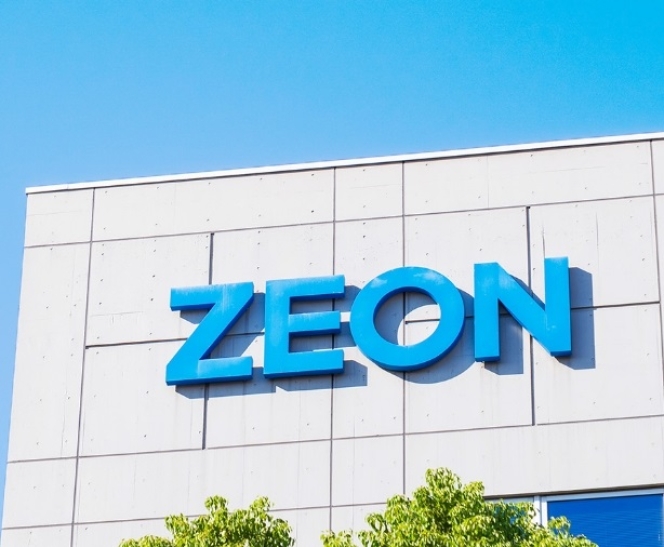
Zeon Corporation has deepened its commitment to digital chemistry through a strategic investment and partnership with Chemify Limited, secured via its corporate venture arm Zeon Ventures Inc. Chemify, a growth-stage UK enterprise, is reshaping molecular research by integrating digital tools with automated laboratory systems. Its proprietary Chemputation technology translates molecular targets into executable chemical code, which operates directly on robotic platforms to complete integrated Design–Make–Test–Analyze cycles without manual intervention. This closed-loop automation allows Chemify to explore previously inaccessible areas of chemical space while reducing the timeline from concept to synthesized compound by up to tenfold.
A cornerstone of Chemify’s capability is its recently inaugurated Chemifarm in Glasgow – one of the most sophisticated automated facilities in the world for molecular design and construction. The facility enables accelerated iteration and autonomous synthesis of novel small molecules, converting chemical code into tangible compounds with unprecedented efficiency. These advances are critical for developing functional, synthesisable molecules that can contribute solutions to urgent global issues spanning public health, energy efficiency and environmental protection.
Zeon has been at the forefront of adopting digital methodologies in chemical R&D, recognising their transformative potential from an early stage. This investment is positioned to strengthen Zeon’s internal digital chemistry efforts and catalyse the invention of novel materials capable of addressing complex societal needs. The move aligns with Zeon’s STAGE30 corporate strategy, which targets a rise in revenue contribution from four key growth sectors – Mobility, Healthcare and Life Sciences, Telecommunications and Green Transformation – to 48 percent by fiscal 2028. By backing pioneering enterprises and cultivating advanced materials, Zeon continues to advance its dual vision of a sustainable planet and a secure, progressive society.
- Rubber Board Of India
- Rubber Producers’ Societies
- Sulphur Dusting
- Powdery Mildew
- Rubber Plantations
- Rubber Board Subsidy
Rubber Board Announces Sulphur Dusting Subsidy For Rubber Producers
- By TT News
- February 09, 2026

The Rubber Board of India has announced the opening of an application window for financial aid for sulphur dusting to combat powdery mildew disease in rubber plantations for the year 2026. The scheme is open to all Rubber Producers’ Societies (RPS) operating in both traditional and non-traditional growing regions.
From 10 to 20 February 2026, eligible societies must submit their applications online through the 'ServicePlus' portal on the official Rubber Board website. Societies requiring help with the submission process are advised to contact their nearest Rubber Board regional office or field station, or to consult the board's website for further guidance.
French Recognition Of TPO Bolsters Pyrum's Circular Economy Model
- By TT News
- February 09, 2026
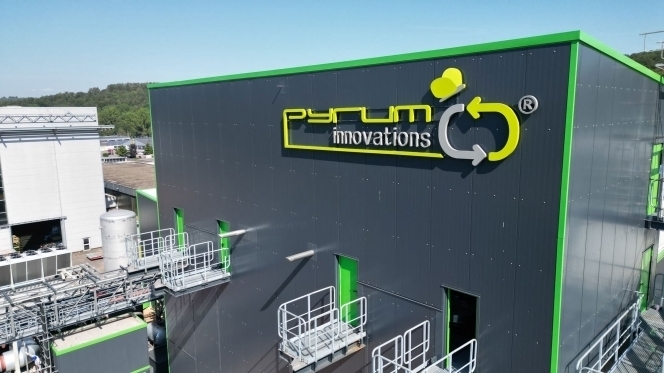
Pyrum Innovations AG has welcomed the official recognition by French authorities on 17 January 2026, which classifies tyre pyrolysis oil (TPO) as a legitimate raw material for the chemical sector. This pivotal regulatory milestone for pyrolysis oil derived from end-of-life tyres substantially enhances the product’s integration into established chemical value chains. It also provides greater predictability for future purchase and partnership frameworks, thereby accelerating the development of industrial material cycles.
For Pyrum, which processes scrap tyres through pyrolysis to recover pyrolysis oil, industrial carbon black and steel, this decision underscores the critical need for standardised and reliable regulatory conditions. Such clarity is fundamental for scaling investments, production volumes and supply chains, particularly as the chemical industry and circular economy converge. The establishment of clear product categories is essential to ramp up the market for high-quality recycled raw materials.
The company remains committed to tracking further developments in France and the wider European dialogue regarding the classification and application of recycled feedstocks. Pyrum’s overarching objective is to expand industrial-scale recycling solutions for scrap tyres. This regulatory progress directly supports the company’s mission to secure long-term, quality-assured supply agreements with partners across the chemical industry, thereby advancing a more sustainable and circular economic model.
Pascal Klein, CEO, Pyrum Innovations AG, said, “The decision in France is an important step for the industrial use of pyrolysis oil from waste tyres. It supports a trend that we are seeing in many markets, where the chemical industry is seeking reliable, technologically robust and clearly classified alternative raw materials.”







Comments (0)
ADD COMMENT